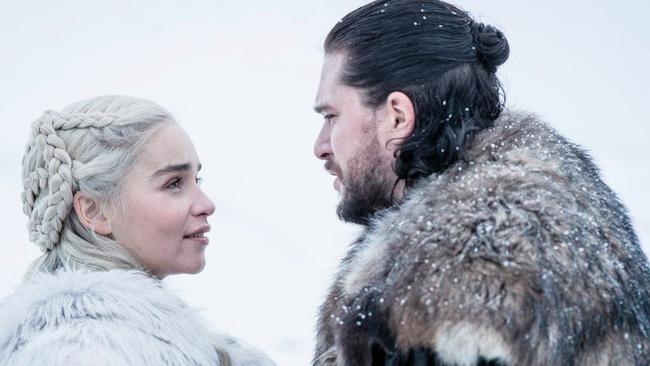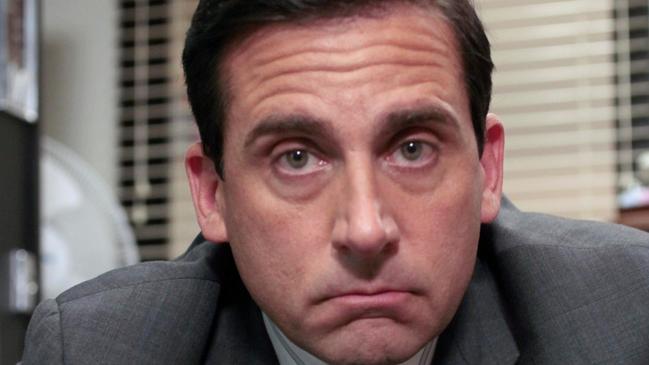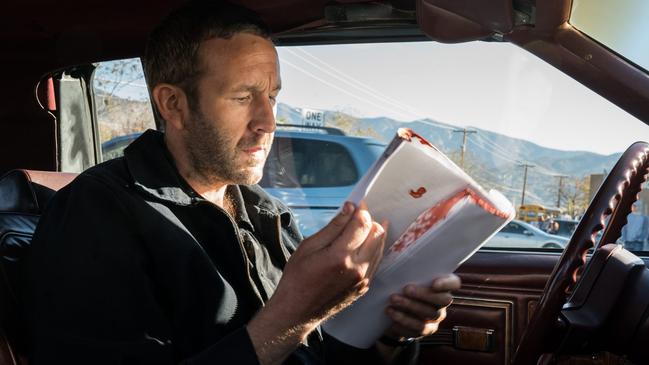Coronavirus taking hold? Here’s some TV to watch in isolation
The world is in lockdown, the future is uncertain ... thank goodness modern television is there to share our isolation.

All right, you might be quarantined by order of the government or maybe isolating yourself because of that nasty cough, or maybe you’re working from home and the office work is done for the day so it’s time to be entertained. Time to drown out the grim drumbeats now so audible outside our homes. Thank goodness for the digital revolution in this time of the apocalypse because you would never have survived the boredom of being forced to watch broadcast TV.
But the new streaming outlets are bulging with movies, docos, sports and TV shows. Television now presents a vast archive, a cavernous library from which to choose, and perhaps more than anything offers the chance to catch up on those classics you have always wanted to be able to discuss with authority at those dinner parties that are now also a thing of the past.
These dramas and comedies captured the high end of the market, exploring the subtleties of character against the larger dynamics of the social world in long-running series that played with genre and expectation. Maybe start with mob drama The Sopranos streaming on Foxtel, the series that represents the turning point when TV shows became better than mainstream movies. You’ll love its Byzantine plotting, psychological intricacies, the fine and committed acting, and the way creator David Chase took risks, asking questions instead of providing answers. Once the first episode starts to enthral you’ll be delighted to see that there are 85 more to go, each around an hour in length.
Then there are the HBO shows of the great David Simon, most of which are also available through Foxtel On Demand. Start with The Wire, which like The Sopranos helped redefine the way we look at TV drama. It’s the show ostensibly about Baltimore cops trying to trap black drug barons with wire taps but really, as you’ll see, a coruscating expose of American society, and described by devotees as being as addictive as the crack cocaine sold by its protagonists. (Baltimore, Maryland, in local street argot, is better known as “Body-More, Murdaland”.)
There’s 60 hours of it, also streaming on Foxtel and as you’ll see it’s a drama that gradually teaches you how to watch it, in the same way a great novel lets you know how to read it.
Another show, already a classic with 139 episodes, is The Walking Dead, based on the comic book series of the same name, which rapidly became not only one of the most famous examples of the zombie fiction genre but one of the most viewed TV series of all time. Fans are still thrilled by its use of dread, abhorrence and anxiety to speak out on social issues. The show’s success on air and its fanatical online following speak to the way the show is conceived as an allegory with strong implications for contemporary society. (Though I still hang on to the notion the series is really a kind of dystopian western, replete with a reluctant sheriff, a wilderness to be explored and “savages” to be fought, an idea first promulgated by The New Yorker’s Erin Overbey.)
Foxtel’s Games of Thrones, another revered modern classic TV show; its eight seasons will allow me to kill two days, 22 hours and 14 minutes so I’ll certainly spread that time out when I encounter the intrigues and power struggles at work in the sprawling lands of Westeros, despite a lifelong aversion to the sword-and-sorcery genre.
Netflix has seven seasons of Mathew Weiner’s Mad Men – that’s around three days and 20 hours of binge watching – set largely in the smoky executive rooms of Madison Avenue’s advertising agencies in the early 1960s, centred on the ruthless profession that shaped the hopes and dreams of contemporary America. Yet, while the gorgeously realised period of the show appears to be a paradigmatic time of conservatism, conformity and consensus, fear and distress are carving out privileged positions of their own in his characters’ lives.
It’s another classic piece of TV, although you may have been put off by reading about the way it’s described as not just Very Good TV, but Art. But you’ll find it’s surprisingly easy to dip into. The writing is concise and fashioned with a 50s movies sense of deliberate structure. Each episode’s A-story is easy to latch onto and, while the subplots take a while to work out, it’s rather tantalising slowly playing catch-up.
Still on Netflix, as a diversion from bingeing TV classics you’ve never had time to devour, check out one of the best, if zaniest comedies of recent times in Detectorists, which won two BAFTA awards in 2015 for scripted comedy and best comedy writing, its unusual comic piquancy turning it into a cult classic. It stars the familiar Mackenzie Crook, so memorably gaunt and lugubrious, who also writes and directs. The increasingly familiar Toby Jones, an actor with a gift for anonymity, is his rather dreary best friend, Lance Stater.
The sad-sack friends – most of the time they seem like two hard-luck stories on legs – go searching for whatever prizes the earth might offer up to them with a couple of metal detectors, around the fictional rural town of Danebury. It’s a series made with the most beguiling sense of integrity and authenticity. It will make you feel good even if you can’t find food anywhere, the stores still roamed by the real-life walking dead.
I’ll be revisiting Peter Duncan’s Rake on Netflix, many episodes of which I missed, as critics so often do after reviewing opening episodes, still the defining local comedy-drama. Duncan gives us an elegantly paced comedy of rather bad manners, featuring Richard Roxburgh as barrister Cleaver Greene, in a long-running series that is also an offbeat character study and a relationship drama that also echoes the legal thriller and the courtroom drama. I love the way Duncan and his other writers trap Greene in a kind of character capsule condemned to talk and keep talking regardless of the hysterical things that happen to him, the forks and flourishes of his chatter part of the story.

Stan, now a formidable competitor in the streaming stakes, has a terrific list of classic comedies, including Rob Sitch’s Utopia, Amy Poehler’s Parks and Recreation, the caustically funny British relationship series Catastrophe and there’s even Fawlty Towers on the slate, along with Steve Carell’s The Office, still one of the funniest shows around. I’m also going to catch the two seasons of Vida, the half-hour drama-comedy centred on two very different adult Mexican-American sisters, who return to their old neighbourhood on the eastside of Los Angeles and are forced to confront their mother’s seemingly shocking past after she collapses on her bathroom floor and dies.

Still tuned to Stan I’m going to binge the three seasons of Get Shorty, the clever adaptation of Elmore Leonard’s novel. Again, I’ve only seen the first episode but loved Chris O’Dowd’s Miles, the central character, who works providing muscle for a Nevada crime operation but is sick of killing and beating up people for a living, digging large holes in the desert to bury the bodies, of constantly checking for surveillance in the rear-view mirror. So he gets into the movie-making business, where he discovers that, like the underworld, everyone is also being two-timed and hustled and everyone else has a scam.
And if you really want to come to terms with how TV has changed Stan has the full six seasons of Lost, JJ Abrams’s mystifying concoction of science fiction, religious fantasy, physics, political science, romance, horror, suspense and psychological drama, with a touch of crime fiction tossed in. It’s 90 hours long, about nine days of your incarceration, or you can eke it out to a couple of weeks.
And once you enter the show’s cosmology you won’t want to leave, even if you need to occasionally consult a guide to Greek mythology and a literary encyclopaedia; a working knowledge of Marvel comics will come in handy too. It’s just the show for these wretched times, playfully presenting us with variations on a theme of fate versus destiny, and confronting us with the universal question: are we completely controlled by circumstances or do we have the ability to change what appears to be preordained.
RELATED STORIES: Blundell’s best of 2020 | The List: David Stratton’s top 10 movies of 2019


To join the conversation, please log in. Don't have an account? Register
Join the conversation, you are commenting as Logout